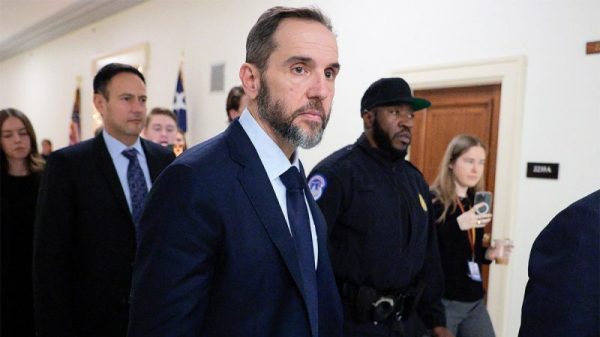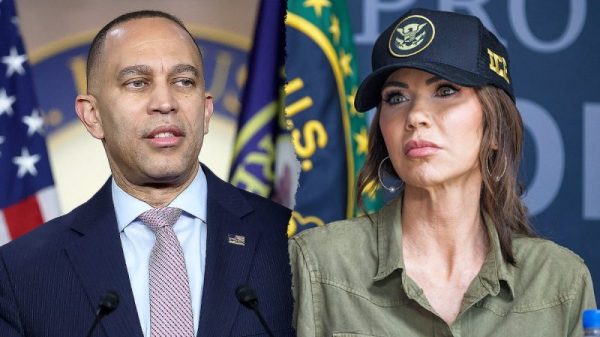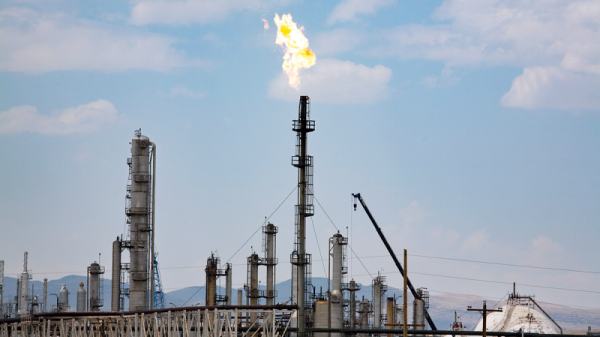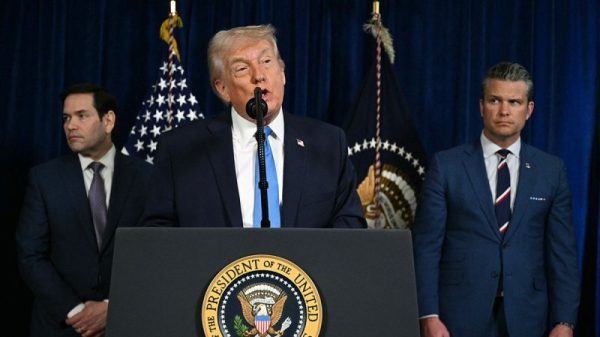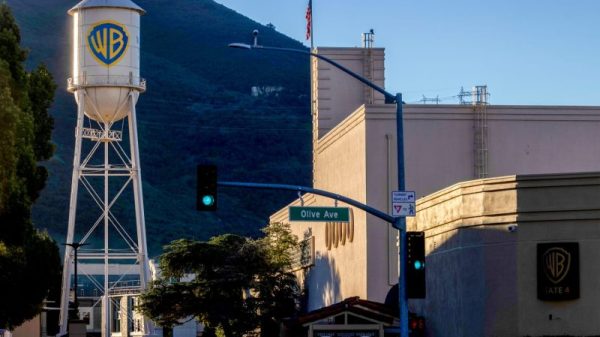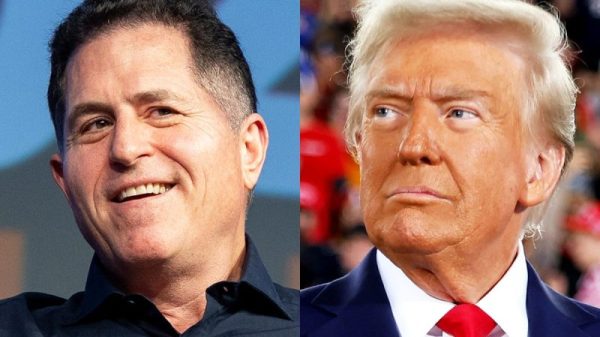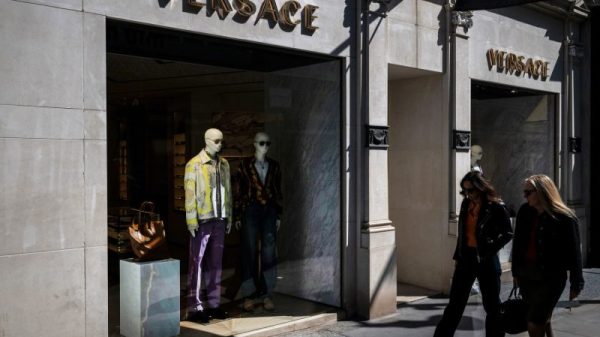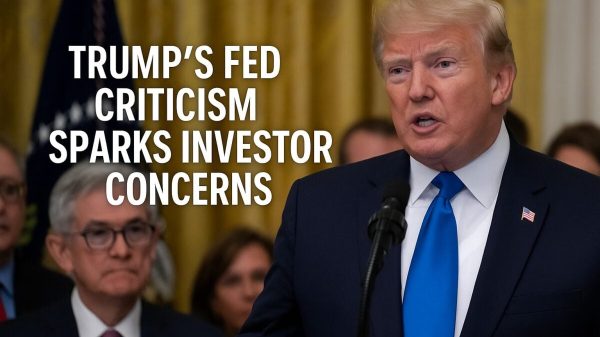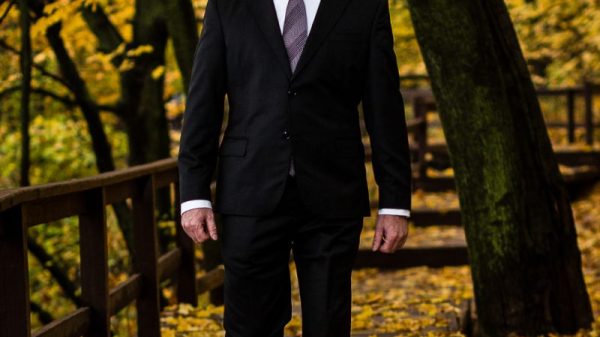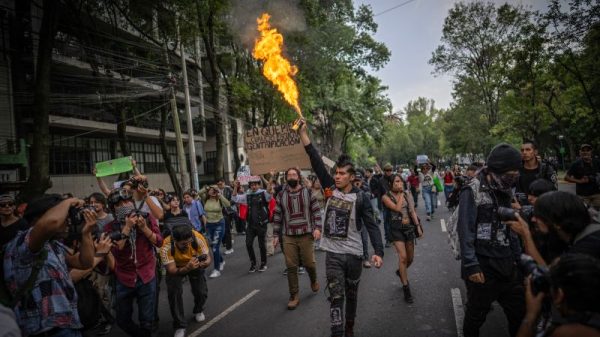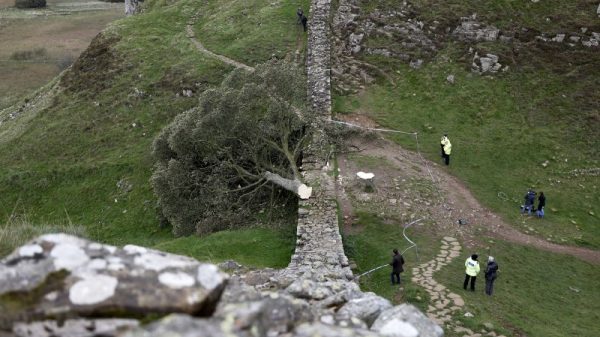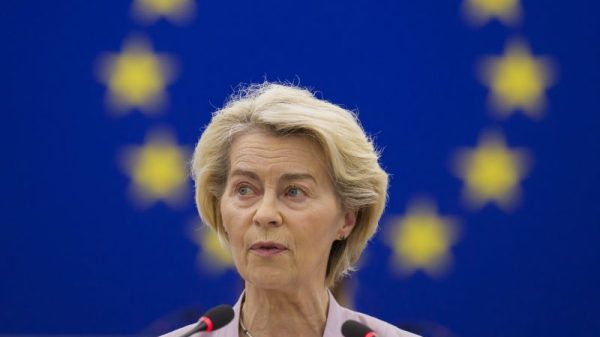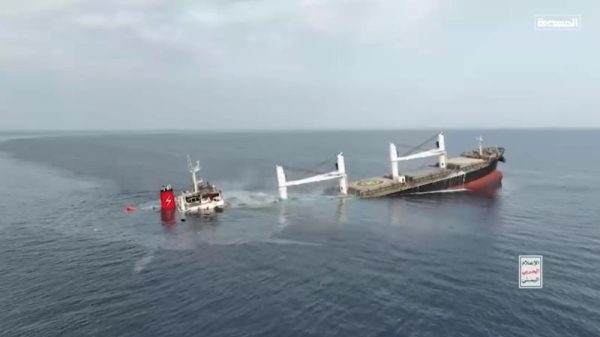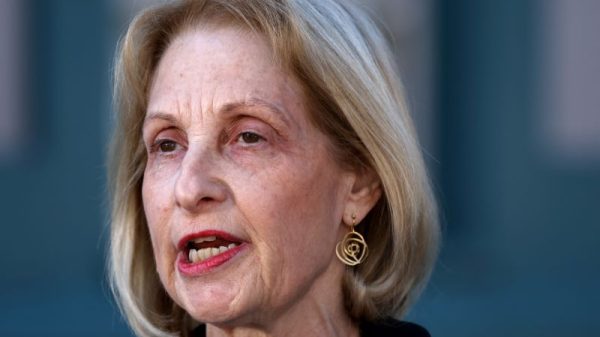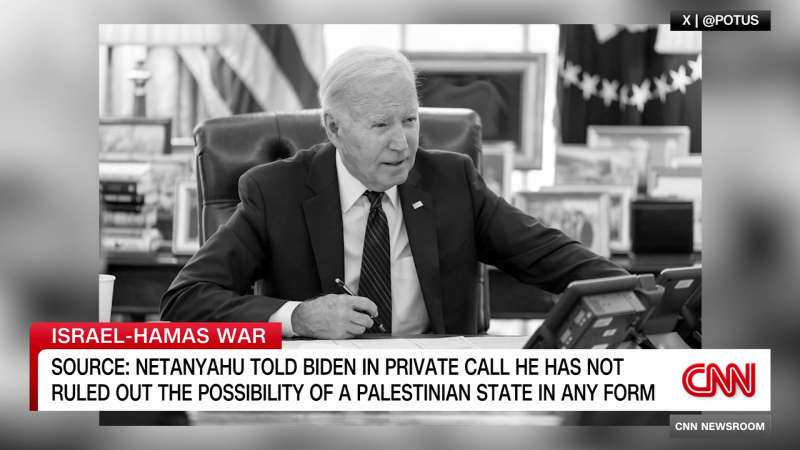The world is once again talking about a Palestinian state.
The issue has caused a deep rift between Israel and its closest ally, the United States. US President Joe Biden keeps pressing for a two-state solution to the Israeli-Palestinian conflict, while Israeli Prime Minister Benjamin Netanyahu rejects any talk of an independent Palestine. Meanwhile, the United Kingdom said it would consider recognizing a Palestinian state, while Saudi Arabia insists that without a resolution to the statehood question, there can be no normalization of ties with Israel.
In all that back and forth about their future, the voice of the Palestinian people has been largely missing. Watching world leaders debate their fate, many Palestinians are not holding their breath. They’ve heard it all before.
Khalil Shikaki, the director of the Palestinian Center for Policy and Survey Research (PCPSR), said that most Palestinians are beyond the point of putting their hopes into statements made by foreign leaders, regardless of how friendly they might sound.
“What they need to see is action on the ground,” he said. “They want to see Israeli occupation ending – and the two most important signs of Israeli occupation are the settlement construction and the control over land.”
Israel captured the West Bank, East Jerusalem and Gaza in the 1967 war. It later annexed East Jerusalem and withdrew its troops and settlers from Gaza.
Under the Oslo Accords peace agreement, the West Bank has been split into three distinct areas, depending on who is in charge. The plan was for Israel to gradually hand over control over more and more areas, but that has never happened. Israel has full administrative and security control over 60% of the West Bank area, which it continues settling its citizens in.
More than 700,000 Jewish settlers live in the West Bank and East Jerusalem, land on which the Palestinians, along with the international community, want to establish a future Palestinian state, along with Gaza. The settlements are considered illegal under international law and are widely seen as one of the main obstacles to a two-state solution.
Netanyahu’s government, the most right-wing in Israel’s history, has been supportive of the settlements, offering tax breaks and other incentives to encourage more Jewish settlers to move to the West Bank. The state’s long-time position is that the settlements are not illegal and that the land isn’t occupied, because it was not a fully recognized part of a sovereign state before Israel took over in 1967.
And while the areas where settlements encroach on Palestinian land have always been prone to violence, settler attacks on Palestinians have spiraled out of control in recent months, raising the ire of the US.
This spike in settler violence against Palestinians – which has gone largely unpunished by Israeli authorities – has prompted the US to take a harder stance. Earlier this month, Biden issued an executive order imposing sanctions on four settlers accused of directly perpetrating violence or intimidation in the West Bank.
Diana Buttu, a Palestinian political analyst and human rights lawyer, who served as a legal advisor to the Palestinian negotiating team in the early 2000s, said the sanctions are a sign that the needle might be finally moving on Palestinian statehood.
“It’s slow, but it’s going in the right direction. And it’s going to pick up and it’s going to have a snowball effect and believe me, it’s already starting,” she said.
Buttu said the decision by South Africa to file a genocide case against Israel at the International Court of Justice (ICJ) over the war in Gaza was a game changer. In late January, the ICJ found South Africa’s claim that Israel is committing genocide in Gaza to be “plausible” and ordered Israel to “take all measures” to limit the death and destruction caused by its military campaign, prevent and punish incitement to genocide, and ensure access to humanitarian aid. The ICJ’s decisions are binding, but it has no way of enforcing them.
“Israel will ignore (the ruling), but the world can’t,” Buttu said, pointing to large-scale demonstrations in support of Palestinians that have been taking place in cities across the world for months.
“We’re going to start seeing more action to hold Israel accountable. We’re going to start seeing more action to isolate Israel, to put sanctions on Israel, to not welcome Israel. It started already,” she said, referring to states that have put curbs on weapons sales to Israel.
But Shikaki said that while they are a powerful symbolic move, the sanctions against the four settlers won’t make most Palestinians believe the US is serious about a two-state solution.
“Unless the entire state of Israel is sanctioned, Palestinians will not see this as anything other than a simple token measure to deceive them,” he said. “The United States will have to take much more comprehensive measures against the entire settler population before Palestinians begin to see this as meaningful change.”
Sentiment on the streets echo Shikaki’s research. Rushing down the street in central Ramallah, just around the corner from a renowned falafel shop, 26-year old Sojoud paused to explain why she didn’t feel particularly hopeful.
That view is shared by many Palestinians. A survey conducted by the PCPSR in December showed that more than 60% of Palestinians want the Palestinian Authority (PA) – the interim government established by the Oslo Accords signed with Israel in the mid 1990s – to be dissolved. Meanwhile, support for the longtime PA President Mahmoud Abbas has collapsed.
“It has plummeted beyond what we have seen throughout his presidency. In the West Bank, 92% are now demanding his resignation,” Shikaki said. “Even within his own political party (Fatah), a clear majority wants him to resign.”
Endless cycle of promises and violence
Orient House in East Jerusalem, set in a lush garden just a short walk from the Old City, was once the unofficial headquarters of the Palestine Liberation Organization (PLO).
The building was a powerful symbol of the Palestinians’ presence in Jerusalem and their aspiration for an independent state with the eastern sector of the city serving as its capital. It was largely here that the plans for a future Palestinian state and its institutions were drawn up.
Nearly 23 years ago, at the height of the Second Intifada, or uprising, Orient House was shuttered by the Israeli Police. The building now sits empty, the garden overgrown and a big rusting lock hanging on its ornamental gate.
Like many other Palestinian institutions and civil society organizations once based in this area, the tenants of Orient House have either been evicted or forced to relocated to the West Bank.
Just down the road from Orient House is PASSIA, or the Palestinian Academic Society for the Study of International Affairs, one of the last remaining Palestinian think tanks in East Jerusalem.
Adnan Joulani, PASSIA’s executive director, said he believes the current calls for the Palestinian state are little more than an attempt by world leaders “to divert attention from the more pressing issue at the time, which is ending the fighting, ending the killing, ending the genocide of the Palestinian people in the Gaza Strip.”
“The reason that I dismiss the idea that this is a sincere call for a Palestinian state is because I’ve seen it many, many times in the past,” he said, pointing to the periods of the First Intifada and the Second Intifada, which led to failed peace talks.
“Everybody was talking about a path to peace, roadmap to peace… if only the violence would stop. Well, guess what? The violence (did) stop and (yet) the idea of resolving the conflict died with the stopping of the violence,” he said.
“Because if it is true, if this conflict has really awakened a sincere desire by the international community, by (British Foreign Secretary David) Cameron and Biden, for the establishment of a Palestinian state, then unfortunately, this is a validation and vindication of the path of resistance by Hamas.”

